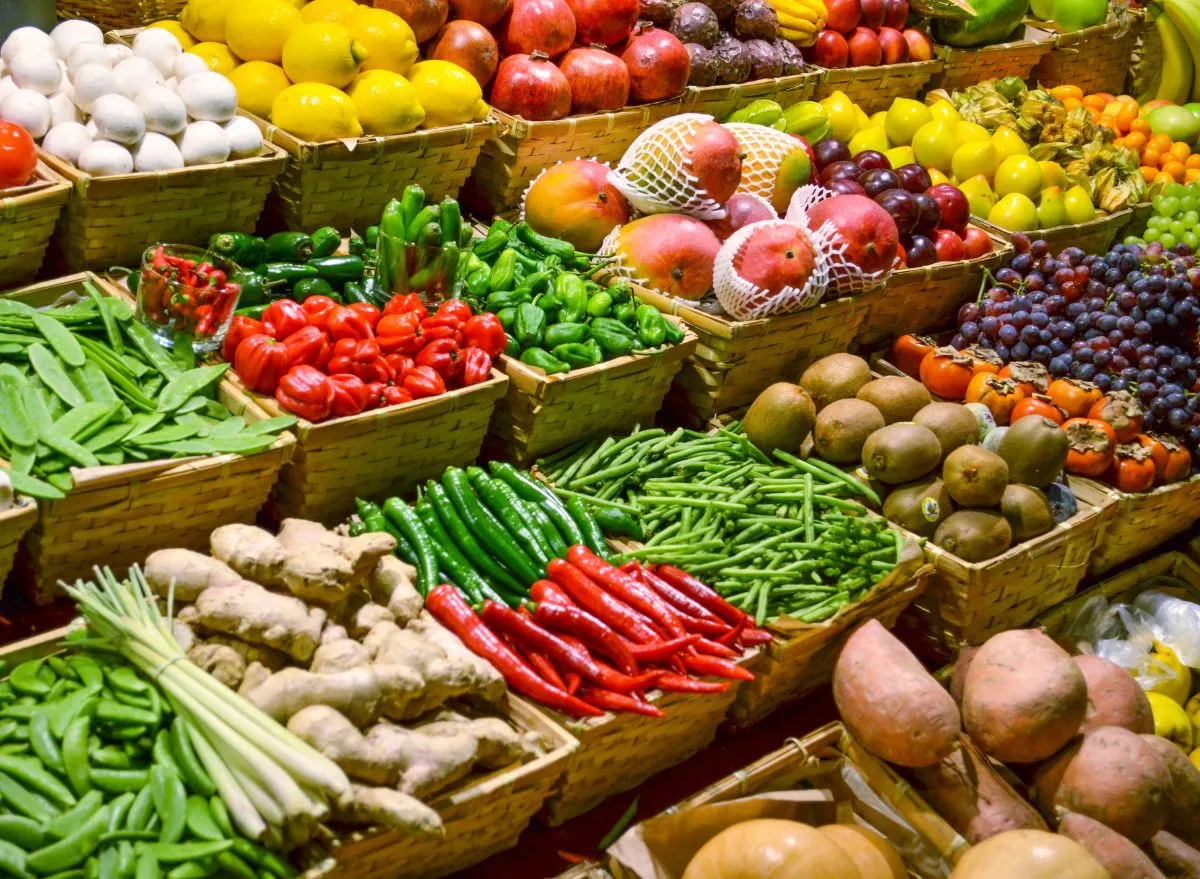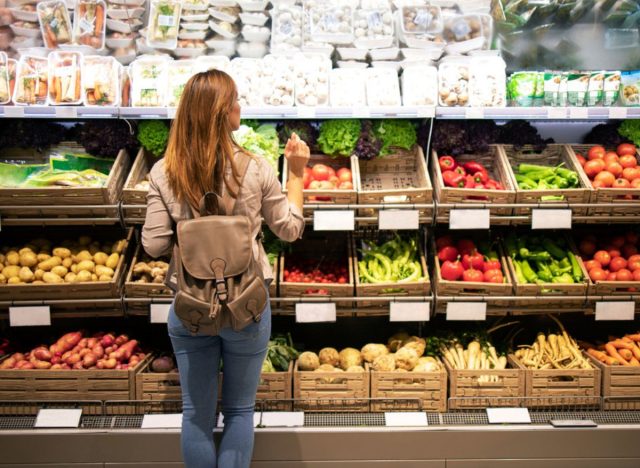12 Fruits & Veggies That Contain the Most Pesticides in 2024

When you bite into a fresh fruit or vegetable in the United States, there's a pretty high chance that pesticides are tagging along on your produce. Advocacy organization the Environmental Working Group (EWG) recently reported that a whopping 75% of sampled non-organic fresh produce items contained pesticides in 2024—and some of those fruits and veggies have particularly high levels in comparison to their peers.
This new data was part of an annual report on pesticides in produce that the EWG releases as a guide for consumers. This year, the report was based on tests of more than 47,000 samples of 46 fruits and vegetables conducted by the Department of Agriculture and U.S. Food and Drug Administration.
The EWG used the data to compile a "Dirty Dozen" list of the fruits and veggies with the highest levels of pesticides. Here are the 12 most contaminated produce categories in 2024—strawberries; spinach; leafy greens like kale, collard, and mustard; grapes; peaches; pears; nectarines; apples; bell and hot peppers; cherries; blueberries; and green beans. The same 12 items also made the Dirty Dozen list in 2023.
A grand total of 209 pesticides were detected on the Dirty Dozen fruits and veggies, per the EWG report. A whopping 103 individual chemicals were found across the kale, collard, and mustard greens that were sampled, making them the Dirty Dozen category with the widest variety of pesticides. Bell and hot peppers weren't too far behind with 101 individual chemicals detected in samples from the category.

Overall, 95% of samples from all 12 Dirty Dozen items contained pesticides. Of the five pesticides found most commonly on the Dirty Dozen products, four were the fungicides fludioxonil, pyraclostrobin, boscalid, and pyrimethanil. The EWG says this is a concern because previous research has shown that those chemicals may pose notable health risks. For example, studies have potential links between those fungicides and issues like thyroid disruptions, the proliferation of breast cancer cells, and endocrine disruptions that can harm the male reproductive system.
The EWG did note that more studies are needed to fully understand just how much of a threat, if any, these chemicals pose to humans. The government also permits certain levels of pesticide residues on human and animal foods in the United States. However, the new data could be a helpful resource for consumers who want to be more aware of which common grocery store fruits and veggies contain especially high levels of pesticides.
Luckily for any shoppers who want to avoid fresh produce pesticides as much as possible, the EWG releases a "Clean 15" list of fruits and veggies with the lowest residue levels alongside its Dirty Dozen list.
This year, the list featured avocados, sweet corn, pineapple, onions, papaya, sweet peas (frozen), asparagus, honeydew melon, kiwi, cabbage, watermelon, mushrooms, mangos, sweet potatoes, and carrots. Nearly 65% of the Clean Fifteen samples had no detectable pesticide residues, the EWG said.
The EWG recommends that consumers on the hunt for produce with low pesticide levels buy organic versions of the Dirty Dozen items and either organic or non-organic versions of the Clean Fifteen items. However, Lauren Manaker, MS, RDN, LD, and a registered dietitian on the Eat This, Not That! medical review board, has previously pointed out that produce may not be pesticide free just because it's organic. Pesticides derived from natural sources may be used to grow organic produce, and Manaker said that even those can be concerning in high quantities.
With any type of pesticide, the severity of exposure is what determines the potential risk. According to Manaker, the amount of pesticide residue on any fresh produce is likely too small to make a big impact on human health.
"None of us are eating the amount of produce that would have a significant effect on our health—for example, a woman would need to eat over 400 strawberries every single day to reach the levels of pesticide residue associated with potential risks," she commented in our previous coverage of the Dirty Dozen list
Both Manaker and the EWG also stressed that eating enough fresh produce in general is far more important than avoiding fruits and veggies that may contain traces of pesticide.
"Everyone should eat plenty of fresh fruits and vegetables, whether organic or conventionally grown. The health benefits of such a diet outweigh the risks of pesticide exposure," the EWG report read.
This story has been updated to include additional information









